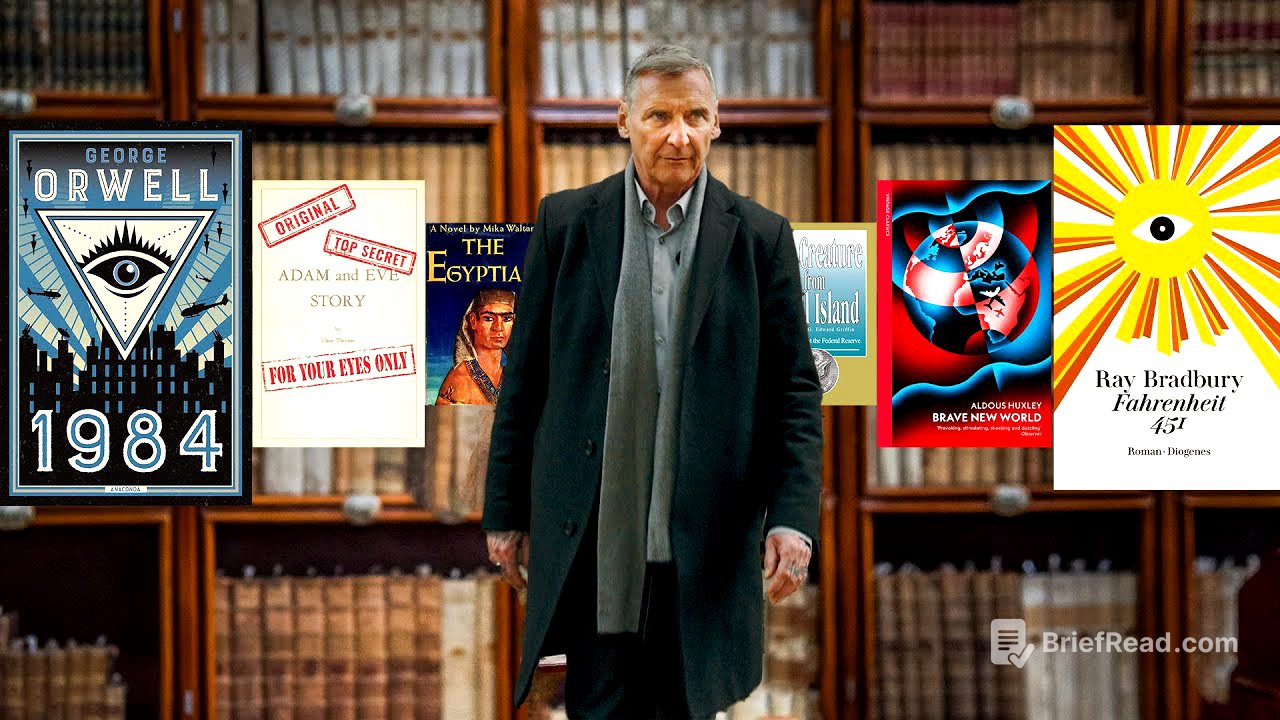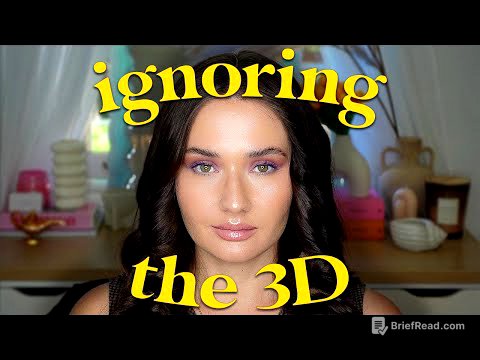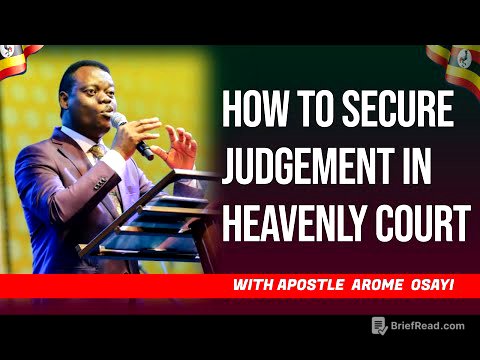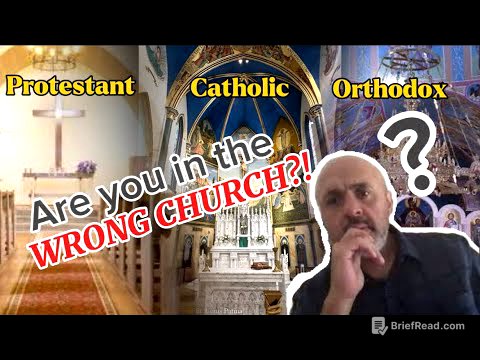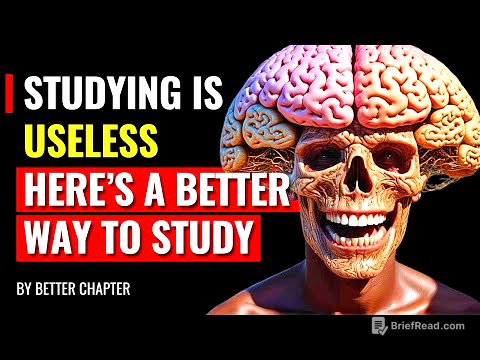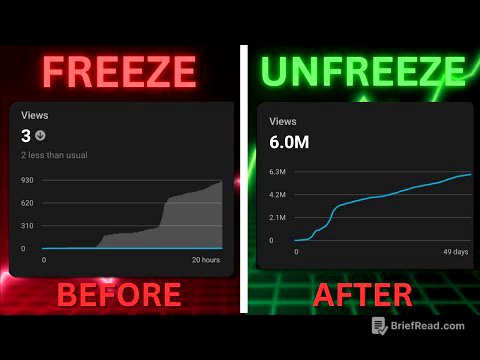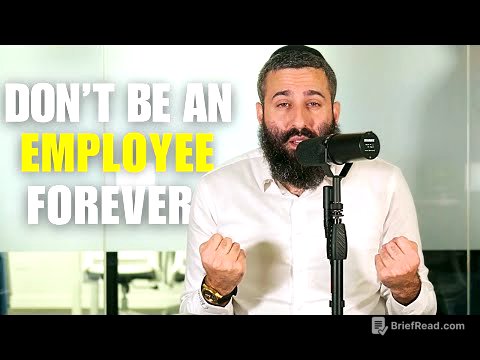TLDR;
This video presents a curated list of 12 books that have been feared, banned, or buried due to their challenging ideas and potential to ignite change. These books cover themes of tyranny, control, manipulation, and the importance of individual freedom and critical thinking. The list includes works of fiction and non-fiction, spanning various genres and historical periods, all with the common thread of empowering readers to question established norms and seek deeper truths.
- The books challenge readers to question authority and societal norms.
- They explore themes of control, manipulation, and the importance of individual freedom.
- The list includes both fiction and non-fiction works spanning various genres and historical periods.
The Gulag Archipelago – Aleksandr Solzhenitsyn [0:30]
Aleksandr Solzhenitsyn's The Gulag Archipelago recounts the horrors of the Soviet prison camp system through the eyes of a survivor. The book exposes how tyranny begins not with violence, but with the silence and obedience of ordinary people. It was censored and hunted in communist countries, leading to Solzhenitsyn's exile, because it undermines the regime's authority by revealing the truth about its oppressive practices. Reading this book is presented as an act of courage, encouraging readers to resist oppression and stand up for what they believe in.
1984 – George Orwell [1:20]
George Orwell's 1984 depicts a dystopian world where truth is suppressed, independent thought is outlawed, and history is constantly rewritten to maintain control. The book was suppressed in communist countries and even faced resistance in the West due to its dark and unsettling portrayal of totalitarianism. Reading 1984 encourages individuals to distrust mainstream narratives and to rely on their own instincts and critical thinking.
The Sovereign Individual – James Dale Davidson & William Rees-Mogg [2:07]
The Sovereign Individual explores the potential collapse of nation-states and the rise of empowered individuals in the digital age. Although not officially banned, the book was allegedly buried by media and dismissed by experts because it challenges the power structures of the elite. It suggests that individuals no longer need to rely on traditional institutions and can forge their own paths to freedom and independence. The book encourages readers to take control of their lives and build an "exit" from systems of control.
The Creature from Jekyll Island – G. Edward Griffin [2:47]
G. Edward Griffin's The Creature from Jekyll Island investigates the creation of the Federal Reserve and its alleged control over the global financial system. While not legally banned, the book has been mocked, censored by algorithms, and blacklisted by economists. It aims to expose the hidden mechanisms of modern economics and encourages readers to critically examine the financial systems that govern their lives.
Brave New World – Aldous Huxley [3:28]
Aldous Huxley's Brave New World portrays a dystopian society where people are controlled through pleasure, drugs, and entertainment rather than overt oppression. The book faced bans and removal attempts due to its anti-religious themes and its unsettling depiction of a society enslaved by its own desires. It serves as a warning against the dangers of comfort and distraction, suggesting that these can be more effective tools of control than physical force.
Fahrenheit 451 – Ray Bradbury [4:06]
Ray Bradbury's Fahrenheit 451 tells the story of a fireman who burns books in a society where knowledge is outlawed and screens dominate people's lives. The book has been censored and removed from classrooms for its themes of censorship and conflict with community values. It is presented as a book that ironically has been burned itself, but one that can ignite a fire of intellectual curiosity in the reader's mind.
Reality Transurfing – Vadim Zeland [4:46]
Vadim Zeland's Reality Transurfing presents a metaphysical framework for understanding how reality is shaped by our thoughts, energy, and attention. Mainstream science allegedly ignores it because it is considered too mystical and challenges established systems of control. The book encourages readers to stop reacting to external forces and start consciously choosing their reality, offering power to those willing to take responsibility for their lives.
Medical Nemesis – Ivan Illich [5:32]
Ivan Illich's Medical Nemesis critiques the medical industry, arguing that it has become a source of sickness rather than healing. Illich was blacklisted in medical academia for his radical views. The book challenges conventional notions of health and encourages readers to question the role of modern medicine in society.
The Mass Psychology of Fascism – Wilhelm Reich [6:07]
Wilhelm Reich's The Mass Psychology of Fascism explores the psychological roots of fascism, arguing that repressed sexuality leads to a surrender of freedom and the creation of obedient citizens. The book was banned in Nazi Germany and burned in America, with Reich himself imprisoned and his ideas erased from history. It challenges readers to confront their conditioning and recognise how the suppression of primal emotions can lead to a loss of freedom.
The Egyptian – Mika Waltari [6:50]
Mika Waltari's The Egyptian tells the story of an ancient physician navigating the corruption of empire, religion, and war. The novel was considered controversial by various regimes for its themes and perceived honesty. It is presented as a book that can awaken the soul's memory, reminding readers that the fundamental challenges of humanity remain constant throughout history.
The Adam and Eve Story – Chan Thomas [7:28]
Chan Thomas's The Adam and Eve Story explores Earth's forgotten cataclysms, pole shifts, and lost civilisations, suggesting a hidden history of planetary resets. The CIA classified the book in the 1960s, releasing only fragments decades later, because it allegedly clashes with official history. It encourages readers to question established narratives and consider alternative perspectives on the past.
Tyndale Bible – William Tyndale [8:09]
William Tyndale's translation of the Bible into English was a revolutionary act that challenged the authority of the Church. Tyndale was hunted, betrayed, and burned alive for giving the people access to scripture in their own language. His translation broke the Church's control over religious knowledge and empowered individuals to interpret the Bible for themselves. Tyndale's Bible preserved apocryphal books that criticised religious corruption and emphasised inner wisdom.
